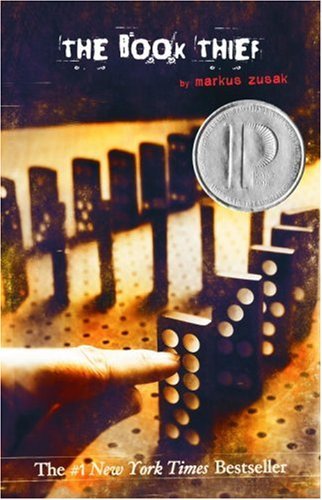TL;DR
Set in Nazi Germany, 'The Book Thief' follows Liesel, a young girl who finds solace in stealing books amidst the chaos of war while her family hides a Jewish man, intertwining themes of love, loss, and the power of words.
What is The Book Thief about
Markus Zusak’s 'The Book Thief' is a poignant novel set in 1939 Nazi Germany, narrated by Death itself. The story revolves around Liesel Meminger, a young girl who, after losing her brother, discovers her passion for words and books when she steals 'The Gravedigger’s Handbook' at his grave. As she settles into her new life with her foster parents, Hans and Rosa Hubermann, Liesel's love for literature deepens, leading her to various acts of book thievery, including stealing from Nazi book-burnings and the mayor’s wife’s hidden library. Amidst the backdrop of war, Liesel’s family takes in a Jewish man named Max, further complicating their lives as they navigate the dangers of hiding him from the authorities. The narrative explores the impact of war on innocence, the importance of storytelling, and the strength found in words, making it a deeply moving tale of resilience.
The Book Thief 6 Key Takeaways
Liesel's discovery of The Gravedigger's Handbook.
At her brother's grave, Liesel's encounter with the book marks the beginning of her obsession with words, setting off a chain of events that define her life during the war.
The Hubermanns take Liesel in as a foster child.
Liesel's new life with Hans and Rosa Hubermann introduces her to the warmth of family and the love of learning, contrasting with her traumatic past.
The family's decision to hide Max, a Jewish man.
The moral complexities of hiding Max in their basement highlight the risks the family takes for love and humanity during a time of severe oppression.
Liesel's acts of book thievery.
Her thefts serve as acts of rebellion and represent her deepening relationship with language as a means of escape and understanding.
The bombing of Liesel's town.
The climax of the story culminates in destruction and loss, symbolizing the devastating impact of war and the fragility of life.
The aftermath of the bombings and Liesel's loss.
The deaths of her loved ones lead Liesel to a profound realization of love and loss, reinforcing the central theme of the book.
Top The Book Thief Quotes
- "I am haunted by humans."
- "The only thing worse than a boy who hates you: a boy that loves you."
- "Words are life. And in the end, they will be the tools that save you."
Who should read The Book Thief?
'The Book Thief' appeals to readers who appreciate historical fiction, particularly those interested in World War II narratives. Its exploration of profound themes such as love, loss, and the power of words offers insights that can resonate with both young adults and older audiences, making it a rich read for anyone seeking emotional depth.
The Book Thief Best Reviews
- "A masterful exploration of the power of words, Zusak's narrative is both haunting and beautifully wrought." - The New York Times
- "The Book Thief is an unforgettable story that speaks to the resilience of the human spirit amid the horrors of war." - Publishers Weekly
- "Markus Zusak's storytelling is captivating, drawing readers into a world where words hold immense power and meaning." - BookPage
People also liked these summaries
The Book Thief FAQs
What is the main theme of 'The Book Thief'?
The main theme revolves around the power of words and storytelling as a means of coping with trauma and oppression, highlighting the resilience of the human spirit.
Is 'The Book Thief' suitable for young readers?
Due to its mature themes and depictions of violence, 'The Book Thief' is more appropriate for older children, teenagers, and adults.
Are the characters in 'The Book Thief' based on real people?
While the setting and events are rooted in historical reality, the characters are fictional creations of Markus Zusak.
